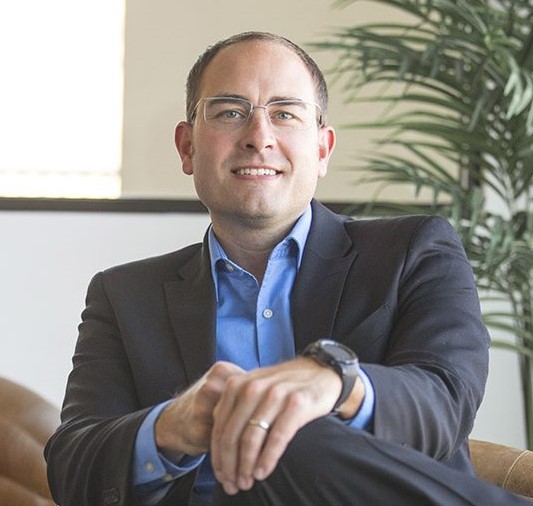Gravis Law may not be a big-city law firm, but that doesn't stop it from offering much of the same legal service for less cost. Is this the model for the future of midsize law?
One of the most innovative midsize law firm models is blooming in an unexpected location: the Tri-Cities area of Washington state, home to about 400,000 residents and just a couple hours east of both Seattle and Portland. But the Tri-Cities headquarters of Gravis Law is just the quickly growing hub of a network of offices across five states.
Brett Spooner formed Gravis fresh out of law school in 2013 and was soon joined by Asa LaMusga. Their ambitions soon encountered what many before them had discovered — that scaling a midsize firm is fraught with challenges. “There’s a lot of 5- to 6-attorney firms across mid- to rural America and the behemoth big law that vertically integrate major markets — with no middle territory,” says Spooner. “A lot of our peers were struggling with the business infrastructure, because it just doesn’t scale.”
But growth — whether organic or by acquisition — has its own challenges. To combat these, Gravis has systematically developed what Spooner describes as almost a “franchise” model, a finely tuned combination of processes, technology, and strategies. Having grown to more than 50 attorneys, the firm expects to more than double its attorney and office count within three years.

Gravis’s 17 offices currently stretch from the Pacific Northwest to Michigan and Florida and are strategically located mostly outside of high-cost major metropolitan areas. While the firm has offices in Seattle, Spokane, and Boise, they are staffed only with a few senior advisors and sales people. Matters in those offices are mostly handled in the firm’s lower-cost branches. “We do a lot of work out of Seattle and other major markets, but at a fraction of the price of classic big law firms in those markets,” explains Spooner.
Having the bulk of its attorneys and support staff in communities remarkably similar to the Tri-Cities — such as Whitefish, Mont., and Muskegon, Mich. — enables Gravis to offer competitive wages that provide comfortable living while avoiding the billed hours pressure of what Spooner describes as “the hamster wheel of death of Big Law.”
But the favorable cost model is only part of the story.
“Everything is agile,” LaMusga says. “We systematize everything — our onboarding process, marketing, IT, communications, all of the back office. We developed our own case management software to suit our needs, and all of our software is highly integrated — CRM, finance, business analytics.” This not only reduces costs and improves efficiency, but it provides a more consistent experience for clients across Gravis Law’s network.
The firm combines cutting-edge digital marketing with high-touch client services and community involvement, tracking every dollar of marketing spend from budget to conversion and ROI through advanced analytics. Understanding those costs and investments is clearly a priority, says LaMusga. “We make it a point to know our marketing data better than most major corporations can.”
Despite its ability to compete for big city business, Gravis stresses its hometown roots and commitment to its communities, and its website proudly proclaims the firm’s investment in each local community. Even with the rapid industry-wide adoption of remote working, having a brick and mortar presence in these communities still matters to the firm, and attorneys are heavily involved in community events and civic boards.

“I think the end result is empowering trusted advisors with the tools and infrastructure to be a real partner to the client,” says Spooner. “They can be more involved with the client and it’s not just about the document or the transaction. At the same time, we’re empowering lawyers with the technology, software, and infrastructure to do their best work.”
Gravis Law’s motto is Law: Uncomplicated, which applies equally to its client-centric focus as well as its streamlined approach to everything from its lean back office operations to its aggressive growth strategy — identify the right markets, adopt a highly systemized approach for talent and operations, provide a consistent customer experience staffed with attorneys and back office operations in lower-cost locations, all stitched all of it together with an advanced technology backbone.
Spooner and LaMusga firmly believe this creates a strong win-win for all involved: their clients, communities, and their attorneys. “We have corporate counsel teams that would look familiar if they worked in downtown Seattle, making as much or more than they did before, but with a better work-life balance,” says LaMusga.
Spooner and LaMusga say they hope Gravis Law’s model and similar models can disrupt the entire middle of the law firm market. “The truth is, we see a lot of firms lacking a viable pathway to either grow or pass the firm on to the next generation or both,” notes Spooner. “This segment needs to find new ways forward or it could wither and fade.”







